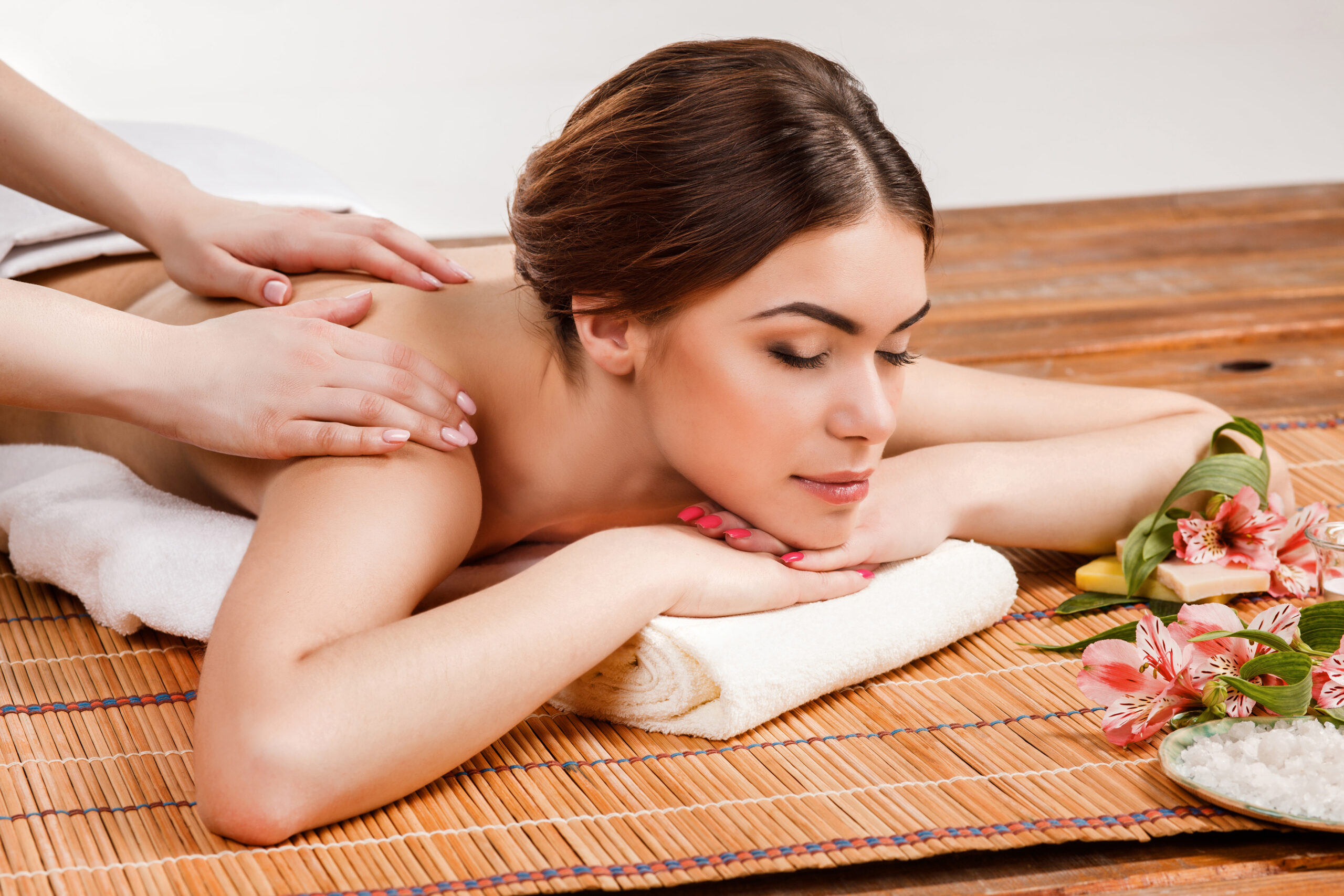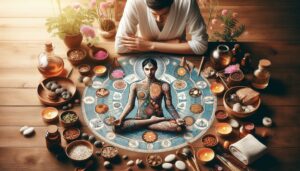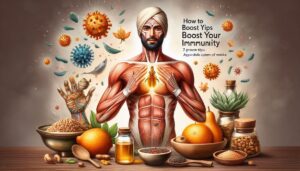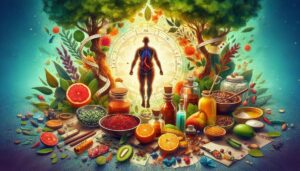Rejuvenation therapy in ayurveda is the ancient system of medicine originating from India, offers a holistic approach to health and wellness that has been practiced for thousands of years. At the heart of Ayurveda lies the concept of rejuvenation therapy, known as “Rasayana” in Sanskrit. This unique therapy aims to restore vitality, enhance longevity, and promote overall well-being by balancing the body, mind, and spirit. In this comprehensive blog, we’ll explore the principles, practices, and benefits of Ayurvedic rejuvenation therapy.
Understanding Ayurvedic Rejuvenation Therapy
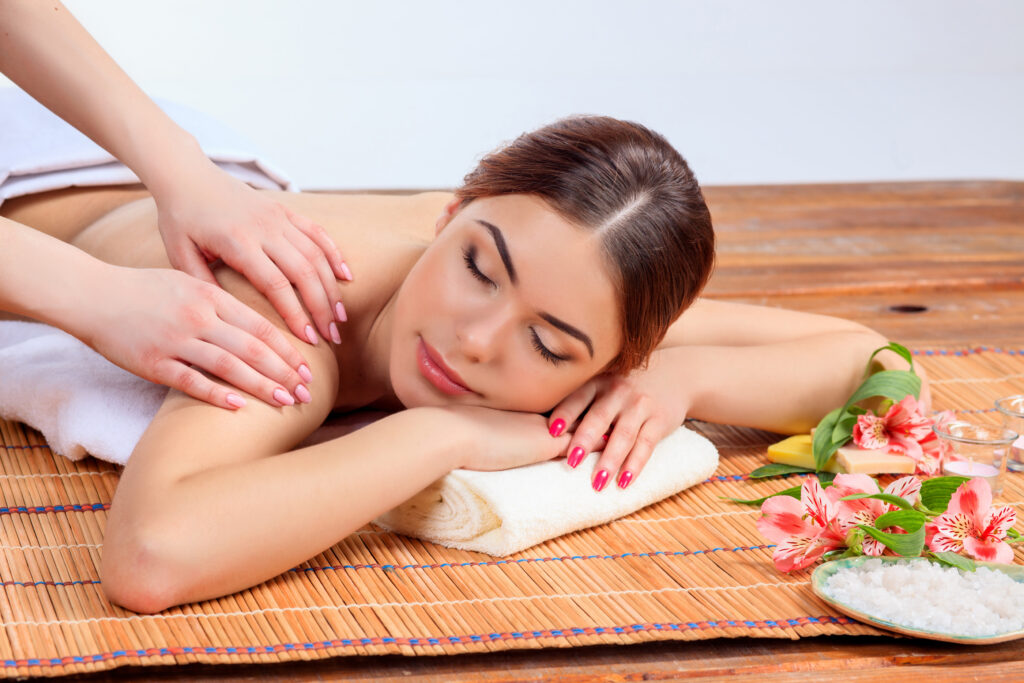
Ayurveda is based on the belief that health and wellness depend on a delicate balance between the mind, body, and spirit. Rejuvenation therapy in Ayurveda focuses on nourishing the body at a cellular level, enhancing the body’s natural healing abilities, and slowing down the aging process. This holistic approach encompasses various treatments, including herbal remedies, dietary guidelines, lifestyle practices, and specialized therapies.
The Principles of Ayurvedic Rejuvenation Therapy
Ayurvedic rejuvenation therapy is rooted in several key principles:
- Balance of Doshas: According to Ayurveda, every individual has a unique constitution composed of three doshas – Vata, Pitta, and Kapha. These doshas represent different physiological and psychological functions. Rejuvenation therapy aims to balance the doshas to promote optimal health.
- Agni (Digestive Fire): A strong digestive fire is essential for good health. Rejuvenation therapy focuses on enhancing Agni to improve digestion, absorption, and assimilation of nutrients.
- Ojas (Vital Essence): Ojas is considered the essence of life and vitality. It is believed to be the foundation of physical and mental strength. Rejuvenation therapy aims to increase Ojas, thereby boosting immunity and overall well-being.
- Detoxification: Ayurveda emphasizes the importance of removing toxins (Ama) from the body. Detoxification practices, such as Panchakarma, are integral to rejuvenation therapy to cleanse the body and mind.
Types of Ayurvedic Rejuvenation Therapies
Ayurvedic rejuvenation therapy encompasses a wide range of treatments and practices, each designed to address different aspects of health and vitality. Here are some of the most prominent therapies:
1. Herbal Remedies
Rasayana Herbs
Rasayana herbs are the cornerstone of Ayurvedic rejuvenation therapy. These herbs are known for their rejuvenating properties and ability to promote longevity, vitality, and overall health. Some commonly used Rasayana herbs include:
- Ashwagandha (Withania somnifera): Known for its adaptogenic properties, Ashwagandha helps reduce stress, improve energy levels, and enhance cognitive function.
- Amalaki (Emblica officinalis): Rich in vitamin C and antioxidants, Amalaki supports immune function, improves digestion, and promotes healthy skin.
- Guduchi (Tinospora cordifolia): Enhances immunity, detoxifies the body, and supports overall vitality.
- Shatavari (Asparagus racemosus): Particularly beneficial for women, Shatavari supports reproductive health, balances hormones, and improves vitality.
Herbal Oils and Decoctions
Herbal oils and decoctions play a significant role in Ayurvedic rejuvenation therapy. These formulations are used for internal consumption as well as external applications, such as massages and oil treatments. Key benefits include improving circulation, nourishing tissues, and promoting relaxation.
2. Dietary Guidelines
Sattvic Diet
A Sattvic diet, which emphasizes fresh, organic, and whole foods, is recommended for rejuvenation. This diet includes fruits, vegetables, whole grains, nuts, seeds, and dairy products. It avoids processed foods, caffeine, and excessive spices, which can disrupt the balance of doshas.
Personalized Nutrition
Ayurveda recognizes that each individual has unique dietary needs based on their dosha constitution. Rejuvenation therapy involves tailoring the diet to balance the doshas and enhance overall health. For example:
- Vata-pacifying diet: Warm, moist, and nourishing foods like cooked grains, soups, and stews.
- Pitta-pacifying diet: Cooling, hydrating, and less spicy foods like cucumbers, leafy greens, and dairy.
- Kapha-pacifying diet: Light, dry, and warming foods like legumes, vegetables, and spices.
3. Lifestyle Practices
Daily Routine (Dinacharya)
Ayurveda emphasizes the importance of a balanced daily routine to maintain health and vitality. Key components of Dinacharya include:
- Early rising: Waking up early to align with the natural rhythms of the body.
- Oral hygiene: Practices like oil pulling and tongue scraping to remove toxins.
- Exercise: Regular physical activity to improve circulation and strength.
- Meditation and Yoga: Techniques to calm the mind, enhance flexibility, and promote mental clarity.
- Adequate rest: Ensuring sufficient sleep to rejuvenate the body and mind.
4. Specialized Therapies
Panchakarma
Panchakarma is a comprehensive detoxification and rejuvenation program that consists of five main procedures designed to eliminate toxins from the body. These procedures include:
- Vamana (Therapeutic Emesis): Induced vomiting to cleanse the upper digestive tract.
- Virechana (Purgation): Use of herbal laxatives to cleanse the lower digestive tract.
- Basti (Enema Therapy): Herbal enemas to cleanse the colon and balance Vata dosha.
- Nasya (Nasal Administration): Administration of herbal oils through the nostrils to cleanse the sinuses.
- Raktamokshana (Bloodletting): Removal of impurities from the blood, typically through leech therapy or other methods.
Abhyanga (Ayurvedic Massage)
Abhyanga is a form of Ayurvedic massage that involves the application of warm herbal oils to the entire body. This therapy helps improve circulation, nourish the skin, and promote relaxation. It is often used in combination with other rejuvenation practices.
Shirodhara
Shirodhara involves the continuous pouring of warm herbal oil or other liquids onto the forehead. This therapy is deeply relaxing and is believed to balance the mind, reduce stress, and enhance mental clarity.
Benefits of Ayurvedic Rejuvenation Therapy
Ayurvedic rejuvenation therapy offers a multitude of benefits that extend beyond physical health. Here are some key advantages:
1. Enhanced Physical Health
Rejuvenation therapy helps improve overall physical health by:
- Boosting Immunity: Strengthening the body’s natural defense mechanisms.
- Enhancing Energy Levels: Promoting vitality and reducing fatigue.
- Improving Digestion: Supporting efficient digestion and nutrient absorption.
- Nourishing Tissues: Promoting healthy skin, hair, and nails.
2. Mental and Emotional Well-being
The holistic approach of Ayurvedic rejuvenation therapy also benefits mental and emotional health by:
- Reducing Stress: Calming the mind and reducing anxiety.
- Enhancing Mental Clarity: Improving focus, concentration, and cognitive function.
- Promoting Emotional Balance: Helping to manage emotions and enhance overall happiness.
3. Longevity and Vitality
One of the primary goals of Ayurvedic rejuvenation therapy is to promote longevity and vitality. By addressing the root causes of aging and imbalances, these therapies can help individuals lead longer, healthier, and more fulfilling lives.
4. Disease Prevention
Rejuvenation therapy helps prevent the onset of chronic diseases by maintaining the balance of doshas, enhancing immunity, and promoting overall health. Regular detoxification and nourishment can reduce the risk of conditions such as heart disease, diabetes, and arthritis.
Potential Risks and Considerations
While Ayurvedic rejuvenation therapy is generally safe and beneficial, it’s important to consider the following:
- Individual Variation: Each person’s response to therapy can vary based on their unique constitution and health status. It’s essential to work with a qualified Ayurvedic practitioner to tailor treatments to individual needs.
- Quality of Herbs and Treatments: Ensure that the herbs and treatments used are of high quality and sourced from reputable providers.
- Medical Conditions: Individuals with specific medical conditions or those taking medications should consult their healthcare provider before starting any new therapy.
- Professional Guidance: Ayurvedic therapies should be administered by trained and experienced practitioners to ensure safety and effectiveness.
Conclusion
Ayurvedic rejuvenation therapy offers a timeless and holistic approach to revitalizing health and well-being. By balancing the doshas, enhancing digestion, increasing Ojas, and removing toxins, these therapies can help individuals achieve a state of optimal health and longevity. Whether through herbal remedies, dietary guidelines, lifestyle practices, or specialized treatments, Ayurvedic rejuvenation therapy provides a comprehensive path to rejuvenation and vitality.
Embracing the principles and practices of Ayurveda can lead to profound transformations in physical, mental, and emotional health. As research continues to explore the benefits of these ancient therapies, more people are discovering the potential of Ayurveda to promote a youthful, energetic, and fulfilling life.


